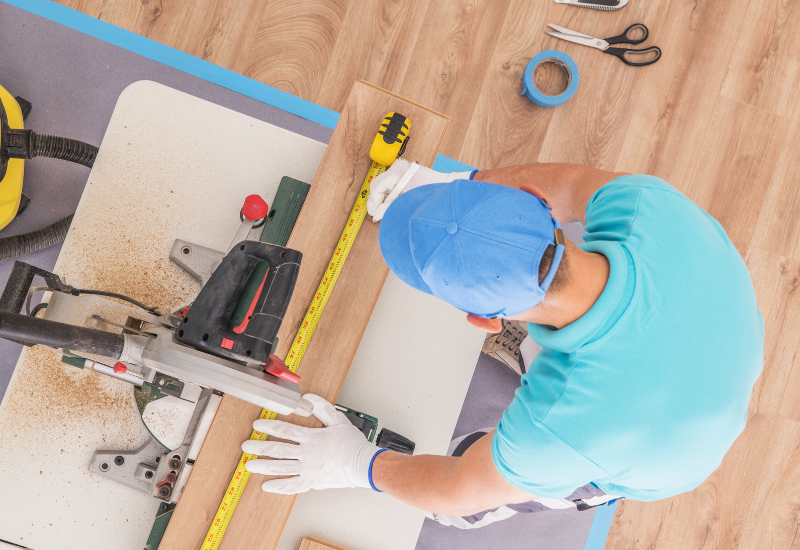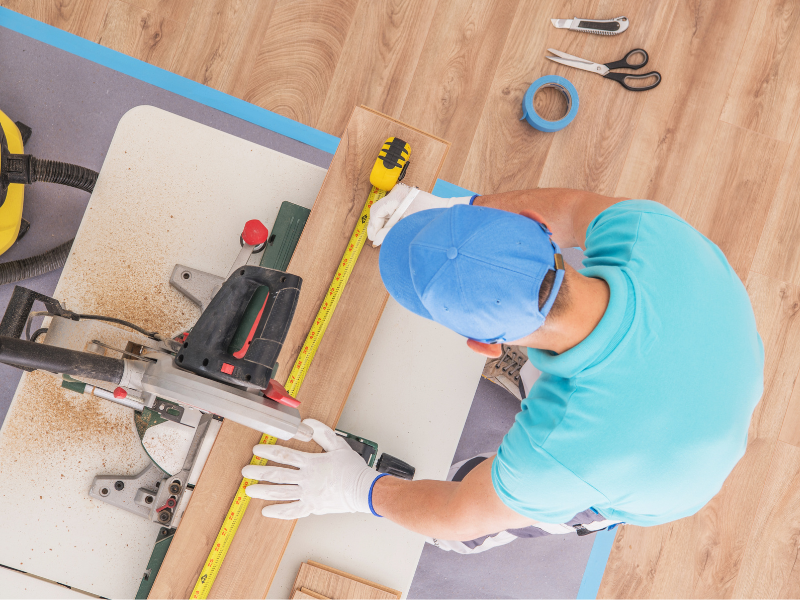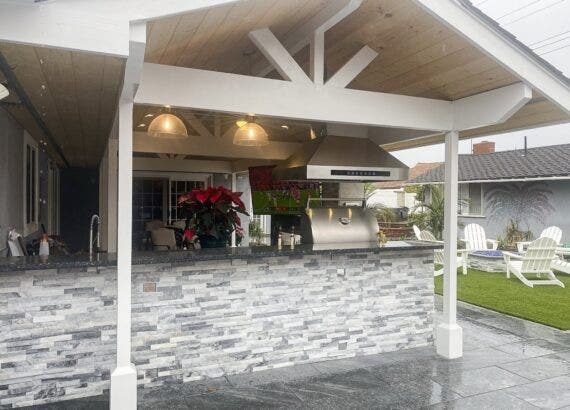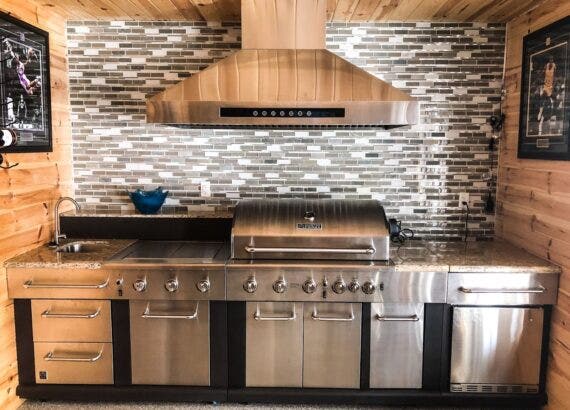How to Grill Potential Flooring Contractors (Essential Questions)

Choosing the right flooring for your kitchen is an important decision that can have a big impact on the space’s functionality and aesthetics. With so many options available, deciding which type of flooring is the best fit for your needs can be overwhelming.

Asking questions establishes transparency with the contractor, which helps you understand the process, timeline, and costs associated with your project. It also allows you to establish a good working relationship with the contractor, making the project run smoothly and keeping everyone on the same page. Finally, asking the right questions ensures that the contractor is licensed, insured, and qualified to do the job, which can protect you legally if any issues arise during the project.
This article will explore three popular kitchen flooring options: hardwood, tile, and cement. For each type of flooring, we will discuss important considerations to remember when selecting a contractor and key questions to ask to ensure you make an informed decision.
Whether you’re renovating an existing kitchen or building a new one, this guide will help you navigate the world of kitchen flooring and make the best choice for your home and lifestyle.
Table of Contents
General questions to ask a flooring contractor
When choosing a contractor for your home renovation project, asking good questions is essential. It helps you make an informed decision, establishes transparency, and protects you legally. By asking the right questions, you can find a qualified and trustworthy contractor who can help you achieve your home renovation goals.
Here are some specific questions you could ask a contractor when installing new flooring in your kitchen:
- Can you provide a line item estimate of the total cost of the flooring installation?
- How long will the installation process take once it is started?
- Will you remove the old flooring and dispose of it properly? How will that be done?
- What type of subfloor preparation is required before installation?
- What type of underlayment or moisture barrier is recommended for the flooring you are installing?
- How will you ensure the new flooring is level and properly aligned with the walls?
- Do you offer a warranty or guarantee on your work?
- Are there any special maintenance requirements for the flooring you are installing?
- What type of flooring do you recommend for a durable, long-lasting floor?
- Can you provide references or photos of previous kitchen flooring installations you have completed?
You will also want to ask questions specifically tailored to the type of flooring you are considering (e.g., hardwood, laminate, tile, etc.), the size of your kitchen, and any specific concerns or requirements you may have (e.g., water resistance, durability, style, etc.).
Questions to ask a flooring contractor about hardwood floors
If you are considering hardwood floors for your kitchen, here are some additional questions you may want to ask a flooring contractor:
- What species of hardwood flooring do you recommend for a kitchen?
- How does the hardness rating of the wood affect its durability in a high-traffic kitchen area?
- How will you address any moisture concerns or potential water damage to the hardwood flooring?
- Can you recommend a stain or finish that will provide durability and style for a kitchen?
- Are there any special cleaning or maintenance requirements for hardwood floors in a kitchen?
- How will you handle transitions from the hardwood flooring to other flooring surfaces in adjacent areas, such as a dining room or hallway?
- Can you provide examples of hardwood flooring installations you have completed in other kitchens?
- What is the estimated lifespan of the hardwood flooring you are recommending?
- Are there any warranties or guarantees provided with the hardwood flooring installation?
- How does the cost of hardwood flooring compare to other types of kitchen flooring options?
Tile Floors? Questions to ask a flooring contractor about tile flooring
If you are considering tile floors for your kitchen, here are some additional questions you may want to ask a flooring contractor:
- What type of tile do you recommend for a kitchen floor, and why?
- How will you prepare the subfloor before installing the tile, and what type of subfloor is recommended for tile installation?
- Can you provide options for tile patterns and layouts, and what impact will these choices have on the final cost?
- How will you handle transitions from the tile flooring to other surfaces in adjacent areas, such as a dining room or hallway?
- How will you ensure the tile is aligned correctly and leveled with the walls and other surfaces?
- Can you recommend grout options and explain how they will impact the appearance and durability of the tile floor?
- Are there any special maintenance requirements for tile floors in a kitchen?
- How will you address any moisture concerns or potential water damage to the tile floor?
- Can you provide examples of tile flooring installations you have completed in other kitchens?
- What is the estimated lifespan of the tile flooring you recommend, and are there any warranties or guarantees provided with the installation?
Cement flooring questions to ask a flooring contractor
If you are considering cement floors for your kitchen, here are some additional questions you may want to ask a flooring contractor:
- What type of cement floor finish do you recommend for a kitchen, and why?
- How will you prepare the subfloor before installing the cement floor, and what type of subfloor is recommended for installation?
- Can you provide options for cement floor colors and textures, and what impact will these choices have on the final cost?
- How will you handle transitions from the cement flooring to other surfaces in adjacent areas, such as a dining room or hallway?
- How will you ensure the cement floor is aligned appropriately and leveled with the walls and other surfaces?
- Can you recommend sealant or wax options and explain how they will impact the appearance and durability of the cement floor?
- Are there any special maintenance requirements for cement floors in a kitchen?
- How will you address any moisture concerns or potential water damage to the cement floor?
- Can you provide examples of cement flooring installations you have completed in other kitchens?
- What is the estimated lifespan of the cement floor you recommend, and are there any warranties or guarantees provided with the installation?
Selecting the right flooring for your kitchen can make all the difference in creating a beautiful, functional, and durable space. As you weigh your options between hardwood, tile, and cement, remember to consider your kitchen’s specific needs and requirements.
Take the time to research contractors, ask important questions, and understand the installation process for each type of flooring. Ultimately, the flooring choice depends on your taste, lifestyle, and budget.
By following the guidelines in this article, you can make a well-informed decision and achieve the kitchen of your dreams.







Comments are closed.